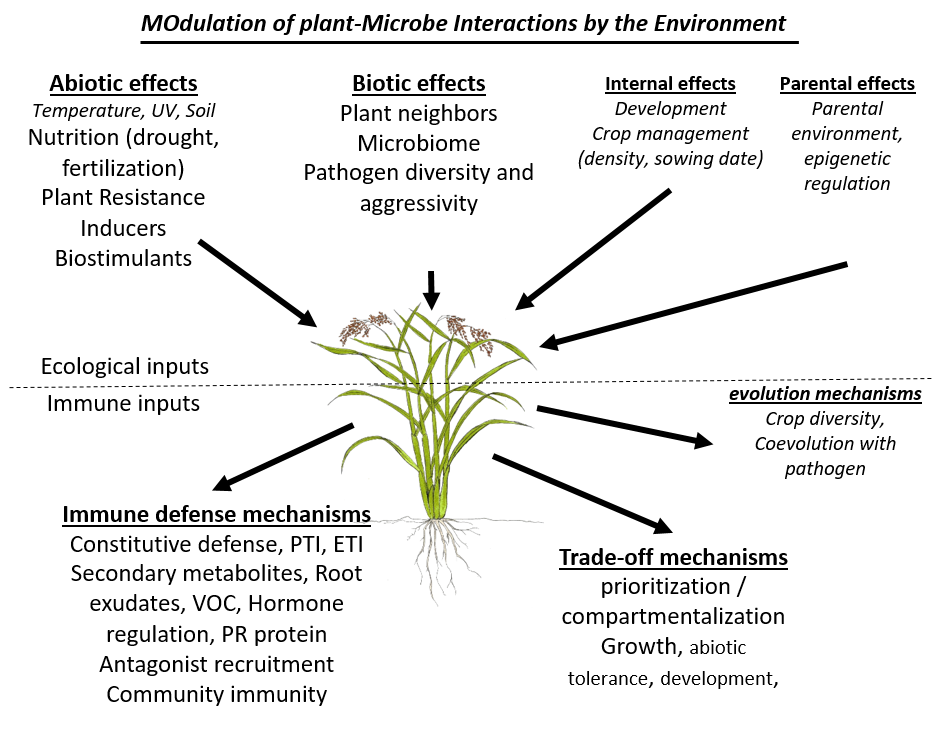MOMIE group
Missions of the team, research question
- How do agricultural practices impact plant-pathogen interactions?
- Predict plant immune response prioritization in an agro-environment.
General objectives
MOMIE’s goal is to adapt the concept of ecological immunity originally described in the animal system (Sadd and Schmid-Hempel, 2009), to the plant system placed in an agroecological context. Therefore we position our work in the framework of agroecological immunity. Generally speaking, this conceptual framework proposes explanations to the modulation of the immune response, i.e., determines why and how the immune response varies, and how biotic and abiotic factors contribute to variation in the immunity of a living organism (Nobori and Tsuda, 2019). This concept will be adapted to a crop system with an objective of production. The exploration of this concept will also raise the question of the trade-off between immunity and crop productivity, both processes being competing for resource allocation within a plant (Karasov et al., 2017).
MOMIE has clearly highlighted, in several publications, the factors influencing the diversity and complexity of cereal's immune system and its regulation (Ballini et al., 2013, Bidzinski et al., 2017, Zhu and Morel et al., 2019). MOMIE will focus in particular on the influence of fertilization (using mineral Nitrogen or biostimulation), irrigation, resistance inducers and plant neighbors.
Theme/research discipline
Functional biology of the plant immune system in response to the environment
Scale of study
Plant

